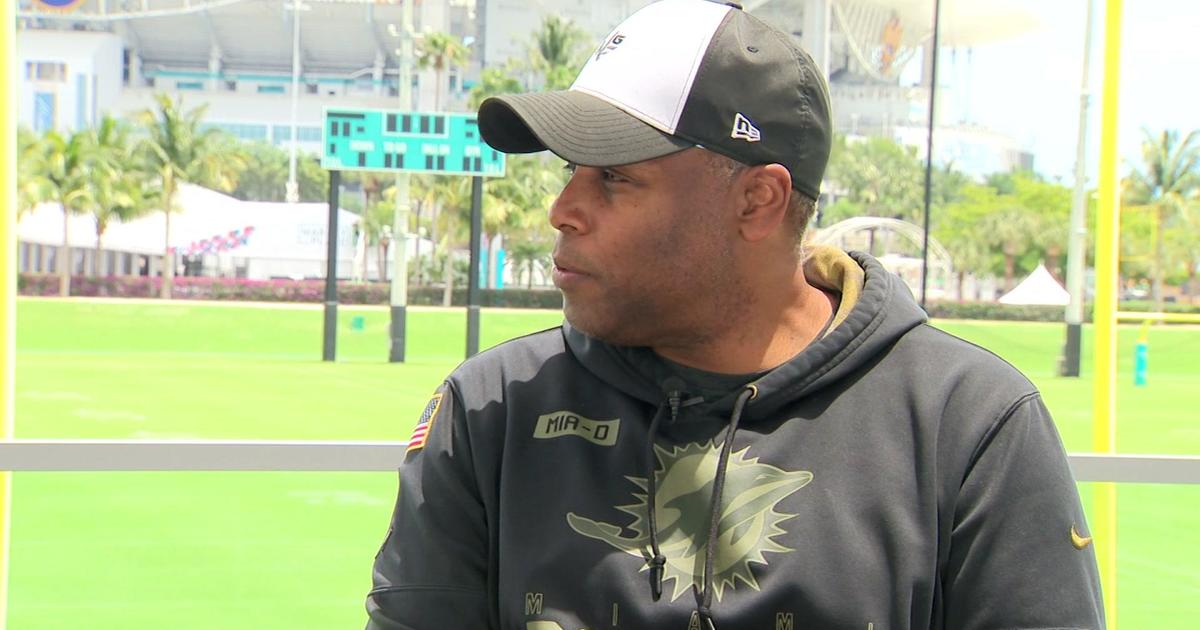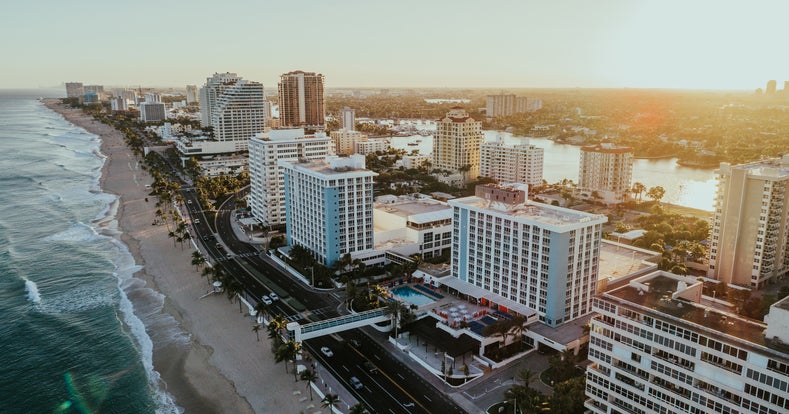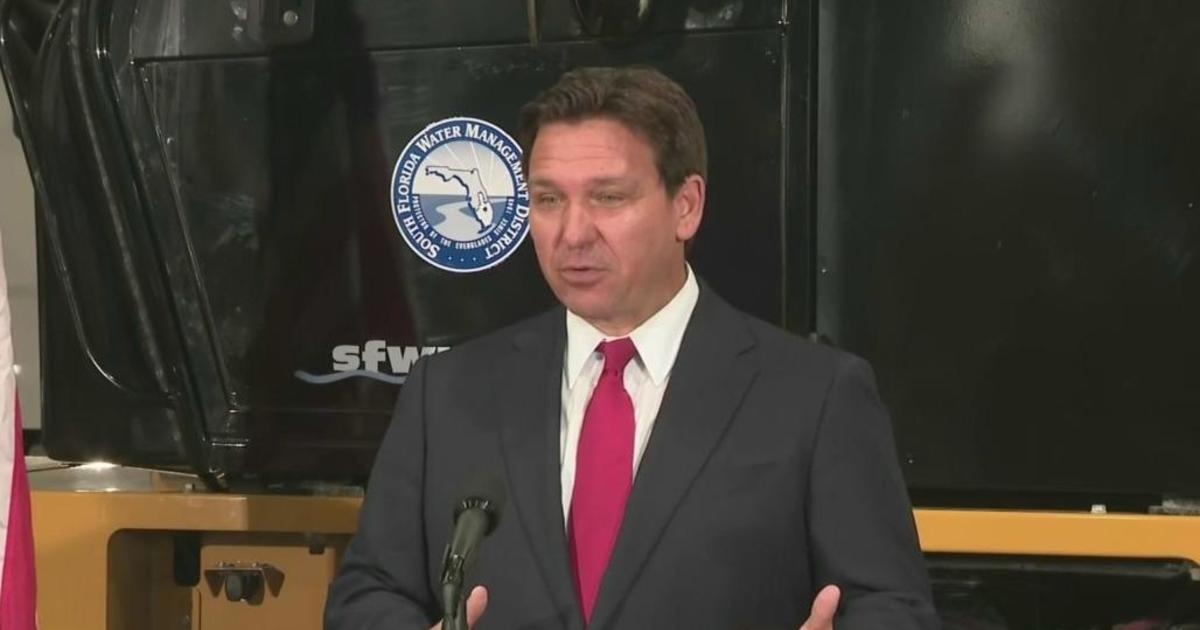Elections Officials Prep Reformed Voter Purge Plan
TALLAHASSEE (CBSMiami/NSF) - It was one of the most controversial plans Governor Rick Scott came up with in 2012, but Florida's elections officials said they learned from their mistakes and will implement a new non-citizen voter purge programs this year.
Secretary of State Ken Detzner met with more than a dozen Northwest Florida supervisors of elections in Panama City during the first stop in a five-day "Project Integrity" tour in a preemptive attempt to calm fears about the purge scrapped last year after supervisors discovered the data they received from the state was flawed.
"It's going to start very slowly. It's going to be deliberative," Detzner said. "We want to make sure that you're confident that the information we are giving you is the kind of information you demand from the Division of Elections."
Detzner is pinning hopes for a smoother process on the Department of Homeland Security's Systematic Alien Verification for Entitlements, or SAVE, system, comprised of data from several federal agencies including U.S. Immigration and Customs Enforcement and the U.S. Coast Guard. SAVE does not include information about undocumented immigrants or people who were born in the United States.
Detzner said the cases will be handled on an individual basis in contrast to last year when supervisors were given spreadsheets with the names of voters whose citizenship was in question after matching the state's central voter database and driver's license records.
"This is not data dumping back and forth where we send lists to the Department of Highway Safety and Motor Vehicles and we send thousands of lists up to SAVE," Detzner said. "This is case management. One case at a time managed through SAVE and SAVE is managing them one case at a time. That's quite a departure from last year. But it requires that type of transparency and attention and detail on each of these cases."
The complicated process comes after supervisors scrapped last year's non-citizen purge --- the brainchild of Scott --- after learning that many of the voters flagged by matching the state's voter registration database and driver's license records were naturalized citizens. More than half of the voters on the list were minorities.
The new process will at first be used only on new voter-registration applications, state Division of Elections Director Maria Matthews told the group Thursday. Those applications will again be matched with Department of Highway Safety and Motor Vehicles driver's license records, which include an "alien registration number" for individuals who are not citizens.
Matthews's staff will then manually attempt to verify the identity and legal status of flagged voters before vetting them through SAVE, which Matthews said contains "the most current information available about the legal status of a person who is not a U.S. citizen."
If SAVE does not confirm that they have become citizens, Matthews said her staff will again attempt to verify the individual's status by cross-checking "secondary sources" --- including potentially getting lists of new citizens following naturalization ceremonies from federal officials throughout Florida --- and prepare an electronic case file. That file will be sent to supervisors, who will have seven days to inform voters that they have been targeted for removal. Voters will have 30 days to respond before the removal process, and they can request hearings or bring information into the supervisors to prove their citizenship. Supervisors can then check voters' legal status through SAVE prior to removing them from the list. Voters who have been erroneously removed can be put back on the rolls if they prove their citizenship or can challenge their removal in circuit court.
Detzner said he did not know when the new purge would begin because he still needs to work out agreements with the local supervisors so they can get direct access to SAVE, which costs a minimum of $25 per month and 50 cents for each record check.
Supervisors expressed some concern about potential delays between when someone becomes a citizen and when that information is updated in SAVE. But overall they appeared relieved by what they heard and saw on Thursday.
"It looks like they're certainly headed in the right direction," said Escambia County Supervisor of Elections David Stafford. "It sounds like they heard and listened to the input from the supervisors from the last process. We need data. We need information. We need source documentation before we're going to start noticing these voters again. It sounds like at least they're beginning to put together a process to do just that."
But earlier in the day, Florida Democratic Party Chairwoman Allison Tant and Democratic National Committee Chairwoman Debbie Wasserman Schultz blasted Scott, a Republican seeking re-election, for reviving the purge.
Wasserman Schultz accused Scott of using the purge "to scare voters" into thinking the voting rolls are riddled with ineligible voters. Fewer than 200 of the 200,000 voters originally flagged by the state last year made it onto the final list of potentially illegal voters sent to supervisors.
"If your path to victory requires voter purges and suppression, then you are not fit to govern and you certainly don't deserve a second chance," Wasserman Schultz, a South Florida congresswoman, told reporters on a conference call.
Wasserman Schultz pointed out that Democratic President Barack Obama won 71 percent of the Hispanic vote and had the support of at least 95 percent of black voters.
"It's very clear who they're targeting, why they're doing this," she said. "They are going to use every tool at their disposal…Rick Scott and his Republican friends can't win elections on their merits so they resort to intimidation and voter suppression."
On Thursday, Detzner repeated what has become a common refrain in the debate about the purge issue --- that non-citizens are among other categories of people, including convicted felons who have not had their rights restored and those who have been deemed mentally incompetent by judges --- who are banned by law from voting. Elections supervisors are required to remove those ineligible voters from the rolls as part of their regular list maintenance.
"I don't take my direction from political parties or leaders of particular groups. I listen to people who have positive contributions to make and look for ways to accommodate their needs, but most important is the credibility and reliability of the work that we do. I intend to follow the direction of the Florida Legislature," he said after the meeting.
Bay County Supervisor of Elections Mark Andersen, a Republican, said the state is experiencing growing pains with the addition of non-citizens to the list-maintenance process, similar to what happened when it began removing felons from the voter database.
"Here's the simple fact for all the parties. The review should be uniform and apply across the board equally. The simple fact is if you're not a citizen you're not supposed to be on our voter registration rolls. The difficult part is how do we get there?" Andersen said.
Andersen acknowledged that the issue is a thorny one, especially with another election on the horizon.
"Florida's a swing state,'' he said. "I know that everybody's looking and if we find a measurement process with thousands of non-citizens on the rolls it is going to be frustrating for many."



